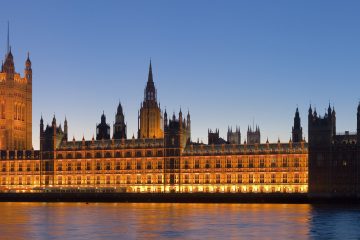Belarus’s 2019 parliamentary election: consequential or not?
On 17 November 2019 Belarus chooses a new parliament. The last parliamentary elections, held in September 2016, brought two non-loyalist candidates into the lower chamber for the first time in more than a decade. Although the role of the parliament is relatively insignificant in the Belarusian political system, the outcome of the poll later this month will send an important signal about Belarus’s domestic trajectory. Moreover, the international response could determine the direction of travel for Belarus’s relations with Russia and Western states as it moves towards presidential elections in August 2020. 2016: A confidence trick? Elections in Belarus usually provide few surprises and critics fairly dismiss parliamentary ballots as inconsequential affairs. In the earlier part of his rule, President …

The Fixed Term Parliament Act: A Recipe for Constitutional Crisis and Prorogation?
In Introduction to the Study of the Law of the Constitution, A. V. Dicey states: “The necessity for dissolutions stands in close connection with the existence of Parliamentary sovereignty… Where Parliament is supreme, some further security for such harmony is necessary, and this security is given by the right of dissolution, which enables the Crown or the Ministry to appeal from the legislature to the nation.” Elsewhere, Dicey refers to examples of dissolution in 1784 and 1834 as examples of such a convention and argues this is a democratic necessity in a sovereign parliament, to argue that “the Cabinet, when supported by the Crown, and therefore possessing the power of dissolution, can defy the will of a House of Commons …

Why Brexit Won’t Change Sinn Féin’s Abstention from the UK Parliament
Irish Republican abstentionism from the British Parliament has a long and complicated history. Arguably, the last few decades since the Good Friday Agreement have been some of the least consequential or controversial since the practise began. The 2017 election, the DUP’s entry into a confidence & supply agreement with the Conservative Party, and the backdrop of a Parliament unable to act upon the result of the Brexit referendum, has renewed interest in it. Sinn Féin’s decision not to take their seven seats in Westminster is causing consternation, particularly from those who wish to see the party enter Parliament and derail a no-deal or ‘hard’ Brexit. While debating the merits of abstentionism is an argument as old as the practise itself, …

Brexit has accelerated, not caused, government’s weakening power over parliament
In Britain, the government dominates parliament. This claim is a staple of “textbook” descriptions of British politics. Academic literature also suggests the British government’s power over parliament is unusual in international terms. As a result, the government’s struggle to secure parliament’s support for its Brexit deal has been widely seen as evidence that Brexit has challenged – or even overturned – this conventional wisdom. However, in this blog post we argue that recent events can be better understood as an acceleration of pre-existing trends in Britain’s political institutions and political parties that have weakened government’s grip over parliament. The Brexit process may have challenged the government’s ability to control parliament, but it was pushing at an open door. Three institutional …









